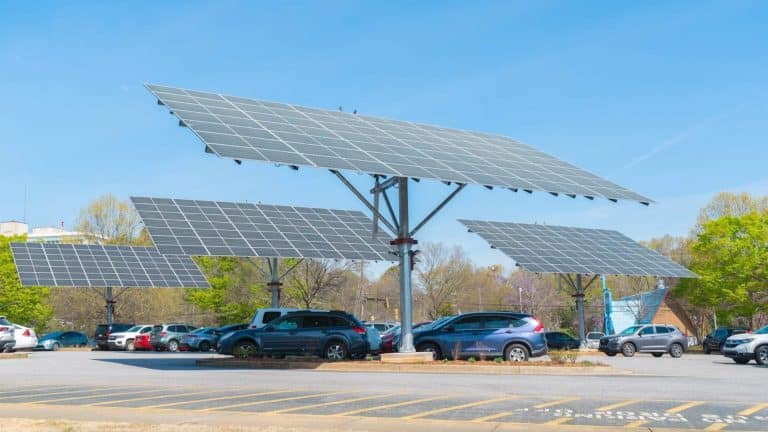We’re the Sunshine State, right? Yet despite having one of the largest electricity markets in the nation, Florida doesn’t make the top-ten state list for solar development. That may be about to change. Florida is poised, with the implementation of Amendment 4, the defeat of Amendment 1, and continuing dramatic drops in solar prices, to start moving its way up the leadership board.
The Florida legislature unanimously approved SB 90, a bill to implement Amendment 4 – a constitutional amendment that  reduces the cost of solar power by exempting solar installations from burdensome taxes. The solar tax burden is one of several challenges to more solar power development in Florida that have been successfully overcome in the past year. The other challenge, an attack on net metering, was successfully beat back by voters with the defeat of the misleading utility-backed Amendment 1 in November 2016 – – it would have paved the way for unfair penalties or fees on solar customers.
reduces the cost of solar power by exempting solar installations from burdensome taxes. The solar tax burden is one of several challenges to more solar power development in Florida that have been successfully overcome in the past year. The other challenge, an attack on net metering, was successfully beat back by voters with the defeat of the misleading utility-backed Amendment 1 in November 2016 – – it would have paved the way for unfair penalties or fees on solar customers.
The defeat of Amendment 1 and the passage and implementation of Amendment 4 represent big victories towards a clean energy future and are a testament to the power of grassroot campaigns – led by Floridians for Solar Choice – a diverse coalition of hundreds of organizations spanning the political spectrum, and thousands of committed volunteers.
Special thanks for successful passage of tax relief for solar goes to Senator Brandes for sponsoring both the legislative resolution that placed the Amendment 4 on the ballot and for getting the implementing legislation, SB 90, over the finish line earlier this month. The bill now goes to Governor Scott’s desk where he is expected to sign it.
What does it do?
The bill exempts 80% of the value of a solar installation from the tangible personal property (TPP) tax for both residential and commercial properties. That’s great news as the TPP tax has been identified as a major roadblock to more solar development. Tangible personal property is generally property other than real estate that is used in a business. Examples of tangible personal property are computers, furniture, tools, office equipment, leasehold improvements, supplies, and leased equipment. Solar equipment falls within that definition. SB 90 also exempts 80% of the value of a solar installation from the assessment of real property taxes for commercial properties. A 100% exemption already exists for residential properties.
Location matters
The language approved by lawmakers ultimately varied a bit from what the voters approved with a 73% vote last August. For instance, the commercial tax exemptions do not apply to solar projects planned for installation in a “fiscally constrained county” that have asked for a land-use change prior to December 31, 2017. This means that some larger installations already built or expected to be built in the near-term will not qualify for the exemption. Solar installations on military bases are not subject to this limitation.
What else should you know?
The tax reductions will apply to solar systems installed on or after January 1, 2018. The implementation bill also includes disclosure requirements in solar agreements for all rooftop solar systems to ensure a fully informed consumer. While the requirements are lengthy, the majority of these requirements already exist in standard disclosure documents, but solar installers should review their contracts to ensure they meet these standards.
Looking forward
Solar power costs just keep dropping – utility-scale power purchase agreement prices are coming in at 3 to 5 cents per kWh. At that price, it’s cheaper for power companies to generate electricity from solar installations than conventional power plants. It should come as no surprise then that Florida’s big power companies are ramping up their solar development. After brining 225 MW online in 2016, FPL plans to place another 300 MW in-service by 2017 and 300 MW in 2018, and a total of 1,200 MW through 2021. Gulf Power Company will place 120 MW of solar in-service by the end of this year, through a power purchase agreement for power from 3 solar installations located on military bases in the Florida Panhandle. Duke Energy Florida has a goal to add up to 500 MW of solar by 2024. A number of municipal utility solar projects, such as City of Tallahassee‘s 40 MW installation, are also in various stages of development.
There’s no doubt that solar power is booming nationally and Florida appears ready to join the solar party. The removal of tax burdens on solar installations will surely accelerate more solar development in the Sunshine State. Will Florida soon break the top-ten list for solar development? The solar outlook in the Sunshine State is certainly looking sunny. Check back with us next year!


